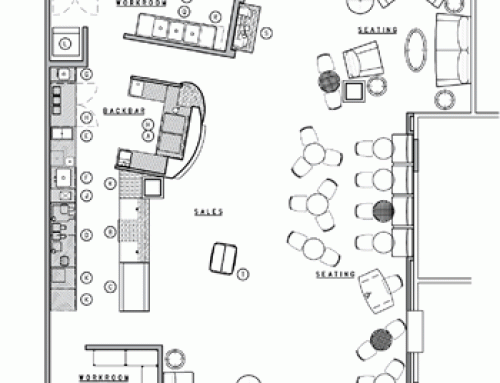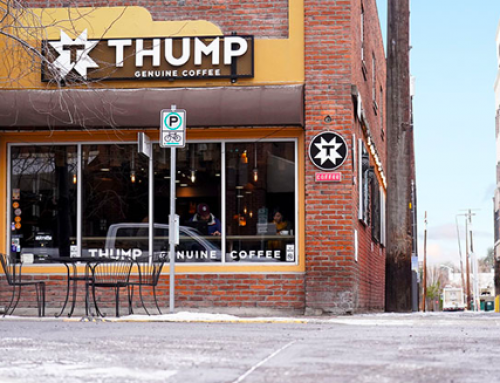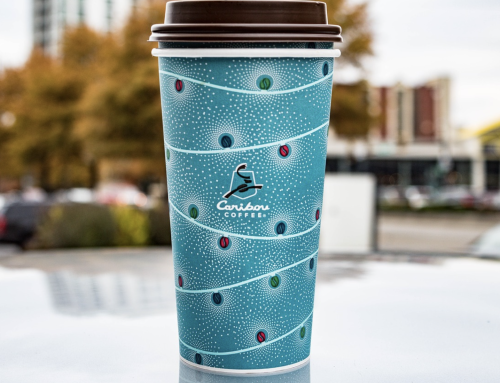Ever wish you could go back in time to give the younger version of yourself a key piece of information? While none of us has the option of going back in time, we do have the power to learn from other people’s experiences.
With that in mind, we surveyed 39 coffee shop owners and industry experts to understand the specific tasks they wish they understood before starting a business. The entrepreneurs featured in this roundup have real-world experience starting and operating successful independent coffees houses. Many now operate multi-location businesses and have a deep understanding of what it takes to be successful from scratch.
If you’re thinking about starting a coffee house, we urge you to reflect on these responses while you’re still in the research phase. Doing so will could help you avoid common mistakes and and increase the odds of success.
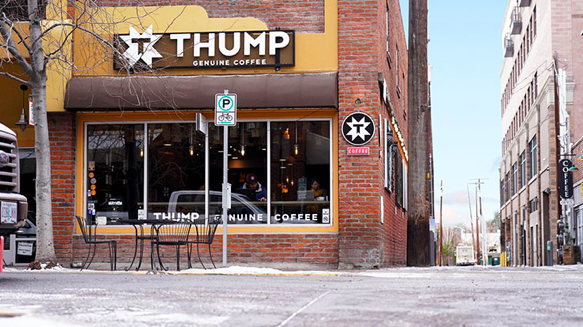
Key themes discovered in the 39 responses:
- Take time to understand the local demographics, population and competition in your area. The more independent coffee shops that open in your area will mean everyone gets a smaller piece of the overall pie.
- You’ll need more sales and volume than you expected. Focus on not only on increasing coffee sales, but also average ticket size too. Find natural pairings with like muffins, breakfast sandwiches, and other easy to make food items.
- Don’t get caught up in the romance of operating a coffee shop. Recognize that you are starting a business that will need to be profitable if you want to operate longterm.
- The hours you invest into starting a coffee shop will be longer than you expect… Especially in the beginning. Don’t open a coffee shop if your goal is to operate a low-stress lifestyle business.
- Believe in yourself and core vision. Other people without skin in the game will attempt to influence the direction of the business.
What I Wish I Knew…
Read on below to get perspective on things you should be aware of before embarking on this business venture.
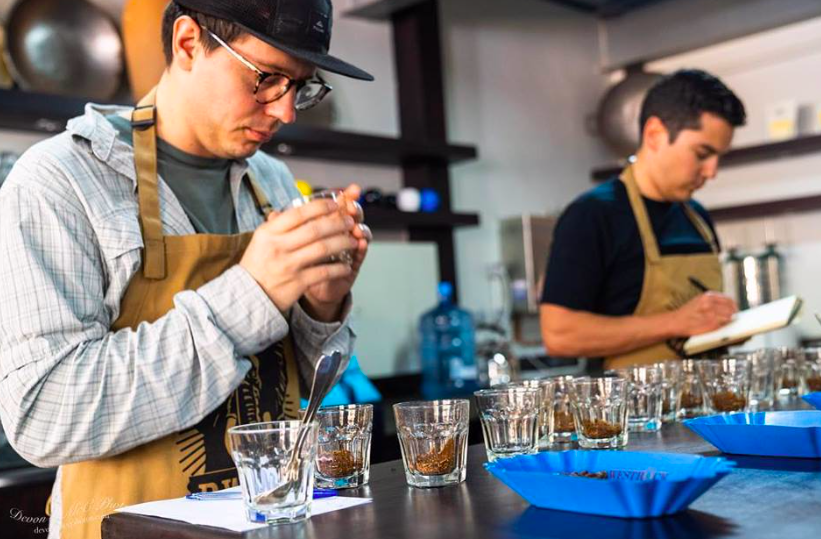
That the coffee business isn’t an easy one just because it’s a popular one! Coffee requires a passion for really chasing an unattainable goal of quality – constantly moving. It’s a seasonal product with many short shelf lives (green and roasted etc), with narrow margins, and low price points. There is no middle ground; the highs are high and the lows are low in this business. If you’re going to do well, either shoot for extreme quality or compete with Dunkin’ Donuts. – Phil Goodlaxson of Corvus Coffee Roasters.
Related Reading: Survey Results: Why Do Coffee Shops Fail?
Nothing. If we knew all of the ins-and-outs and exactly what it would take, we probably would not have ever started. Naivety is a beautiful thing when you are just getting started on you business. – Lindsay & Alex Dalton of Weathervane Cafe.
It’s not really the one thing I wish I knew, but something that I have learned over time. YOU NEED A LOT MORE VOLUME THAN YOU THINK. I have seen so many coffee shops start because they find a “good spot” because they think they have a captive audience and/or people will come to them because of their differentiating factor (quality, service or a certain product). They also think that everyone in that population thinks about coffee like them and are willing to go to the ends of the earth to find them, but this is far from the truth. Coffee is 90% a convenience item. Most people will not drive across town and pass multiple coffee shops to go to their favorite that day, yes, some days they will.
If you have a captive audience that you can make 10% per customer, they will not all come in everyday. The average loyal customer is twice a week. So if you have a local spot with 4000 people who are your captive audience, you get about 400, now divide your 400 by 7 and multiply by two for twice a week and you have 114 transactions a day. With and average coffee transaction around $5.50 (depending on where you live), you get $627 a day from your “captive audience”. So where are the rest going to come from? And note: 10% is a high capture rate. I am thinking of a location in a hospital, business center or local neighborhood. Another thing is that you need to do is take your population then divide it by the number of coffee shops in the area.
Most peoples reason for starting a coffee shop is because they love coffee and cafes and want to make it their life. They choose a really cool place they would like to live and start coffee a coffee shop. You must take into account the size of the pie (population) and how much it is divided up (coffee shops). You will not get the whole pie, but another small piece, which will make all the pieces inevitably smaller. My question to most people who start up is this: Why not buy out a current coffee shop and make it your own with your own spin? This keeps the size of pieces that same and decreases all your development expenses, allowing you a budget to improve your space. Note, I would only buy a profitable coffee shop or one that has the gross revenues to work with. Even if it is a little more money, it should be worth it because it is a proven population.
Advice: Find a place with a big (30,000) local population or traffic count within 1 mile radius from your shop with no competition and open your shop. If people see that you’re successful, they will follow and build, but know that you have captured the hearts of the people first and people are loyal as long as you don’t give them a reason to leave you. Always be worth more than people are paying you! – Bobby Grover, Owner, Thump Coffee in Bend Oregon.

Before I opened a coffee shop, I did a lot of research and reading. I wish I would have known to trust myself and my decisions better. I had a clear vision and listening to everyone else’s thoughts and opinions stated to veer me away from what I truly wanted. As women, we tend to not listen to our intuition as much as we should. – Hannah Ulbrich, proprietress Copper Door Coffee Roasters.
How difficult it is to build and run a profitable foodservice operation. They get caught up in the romance of owning a cafe, with little understanding of what it will take to be successful – statistics indicate that over 95% of retail foodservice operations go out of business before 2 years. – Edward Arvidson, founder of E&C Consulting and the Cascade Coffee School.
Owning a coffee shop is a romantic idea. I envisioned that I would be visiting with the regulars and drinking coffee all day long. Some of that is true… I do love to chat and drink coffee. However, there is always a long list of things to do-I wish I would have known how expensive equipment repair/replacement would be, the constant need for new things, and the importance of having a team of professionals on your side-like repair people-that you know and trust. I mistakenly thought I could rely on friends and my significant other for day to day repairs and fixes. I wish I would have set up a list of trusted electricians, HVAC, plumbing, and restaurant equipment folks long before I had issues. – Michelle Ackerman, Owner of Black Eye Coffee LoHi
Do your research, know what will set you apart and talk to other business owners who have gone before you. The coffee industry is very friendly and helpful. People are always willing to help and tell you the growing pains they had so they can save you some of the pain. – Erica Lowery, Show Director at Coffee Fest Trade Show.

Coffee shops make money from volume since its such a small income per unit so it’s how many units you sell per day. Unlike a restaurant, volume is great too however, with high ticket items you don’t need as much volume as a coffee shop. Some of the taxes that creep up on you are tough as well, we didn’t realize how much of a percentage of income it pulls away from us. It’s already tough for small businesses to run and be successful, we think it would be nice for taxes to be on a sliding scale based on gross revenue so everyone has a fair chance to become a success story. Also, the balance of food options which go with coffee, it’s important to include such things to not only pair with coffee but also to turn a 3 dollar sale into an 8 dollar one especially if you are in a new and upcoming, and or sleepy community that doesn’t have the density or foot traffic other areas do. – Austin & Tony Ferrari “The Ferrari Bros”, Founders of Provender Coffee, San Francisco
I didn’t anticipate how much time working on the actual ‘business’ of coffee would take. I came from a coffee background before starting GOOD. I had worked on both the roasting & the retail side of things. I assumed that when we started our young company, that I’d be spending a lot of time making coffee, and also roasting coffee, once we began to do this. I was unprepared, however, for how much time must be spent on building a healthy, nuts & bolts business – regardless of the product in question. – Sam Purvis, co-owner of Good Coffee in Portland
I wish I knew how to hire and train people better. Coffee business is a people business. You’re only as good as your staff. – Jack Kelly, CEO of Caffe Ladro
I wish I knew a lot of things, but chief among them would be the unbelievable number of decisions that I would need to make every day. It seems so simple from the outside, but on the inside, there are just an overwhelming number of little things that need to be decided every single day. – Bobak Roshan, Founder of Demitasse Coffee
How to make coffee. I’m a motorcycle guy that loves coffee, I can put a carb, pull a spark plug, rebuild a top end but I didn’t know lick about how to pull a shot. But that’s what great business partners are for and George Kassapakis stepped in there… – Thor Drake, Founder and Creative Director for See See Motor Coffee Co.
The existence of the book, “What I know about running coffee shops” by Colin Harmon. I learned the hard way, many of the great lessons in this book. – Zack Reinig, Founder and Owner of Union Coffee
The one thing I wish I knew before starting our coffee shop was how much time I would be spending on our coffee shop. Not only physically being at our coffee shop working, but running errands around town, emailing vendors, networking, thinking of new menu items, etc. I liken it to a newborn baby, it just requires a ton of time. – Mitch Denison, Co-owner of Sparrows Coffee
Everything has been a learning experience since the beginning. One crucial point I think is the financial aspect. I didn’t know the challenge on how to make profit from coffee. – Maria Garcia, owner of Revolucion Coffee House
Coffee shops tend to be a lifestyle industry though, so I wish I knew more about social media engagement. Frankly, I think Instagram is incredibly vain. My insta account is constantly being flooded with scantily clad people with 50,000+ followers trying to get me to follow them and as such, Instagram feels like a huge monster for me. As a Yankee Mainer, I believe in modesty and I shouldn’t need to shamelessly promote myself. My product should speak for itself. But that’s not necessarily the reality of the social media marketing world that we live in. So I would really prefer to run my coffee shop and not have to do social media because I don’t know how to effectively use it. I didn’t open a coffee shop so I could spend hours taking pictures and finding the right filter or hashtag to use. – Will Hardy, Proprietor of Vagabond Coffee – Maine
There are 3 things (I couldn’t do just 1) that I learned after our third location that I wish I knew before our first. I should have expected to be there every day for at least the first year, learned 1,000 new names of regular customers and understood how to read and understand financial statements. – Chuck Jones, small business Owner, Jones Coffee Roasters
I bought Priscilla’s at a very different time in the coffee business so I am not sure how relevant my input is. In 1988, my business was more about the beans. As time went on, espresso drinks took off. I was 23 and just graduated from UCLA. I had no student loans, no credit card debt which is prevalent today for someone that age. Today, I would tell people how important cash flow and emergency funds are. I don’t think people understand how important it is to prepare to have your mortgage or rent paid, health insurance, etc…for you personally. Plan on a year! That way your business doesn’t suffer when you have to pay your home mortgage. Again, this is a different time because the cost of living is so much higher in Los Angeles than it was 30 years ago. So in essence I would say that CASH FLOW IS KEY! AND HAVING ENOUGH MONEY FOR A YEAR TO COVER PERSONAL COSTS! You don’t need to freak out on how well your business is doing while also worrying how to pay your personal bills. – Shannon Hartman, President/Co-Proprietor at Priscilla’s Gourmet Coffee
It was 3 years in my set up of my first coffee shop that was a long period without revenue. All business in Boston take a year to set up if you have a site and a lot longer if it is new construction. That would be the main thing to know. This did however give me the chance to know a lot of my neighbors and work with my roasters and work in a cafe environment before my door opened. – Todd Moore, Founder/President of Cuppacoffee
Distribution and logistic are key element to operate successfully a coffee shop. That’s something to master. – Sylvain Chailllout, Founder, Les Gourmands LLC
Nothing will ever be perfect, so experiment constantly. Your main competitive advantage lies in the ability to move and adjust quickly, to see opportunities and seize them immediately. So do that. Be nimble, be adventurous, live on the cutting edge. No amount of planning, regardless of how well its done, will ever be able to account for everything that can (and will) happen. Yes, take some time to think through what you’re doing, but never let “What if” get in the way of “Why not”. – Ed Goyette, Founder, BeanTowne Coffee House
I wish I had known how much time, energy and emotion it would take. It’s a labor of love! – Jullie Love, Community Relations at The Well Coffee House Boston
Probably the cost of starting up. Consider the buildout, equipment, and staffing as part of that, as well as the inventory. – Nick Parker, Owner of Mercury Cafe
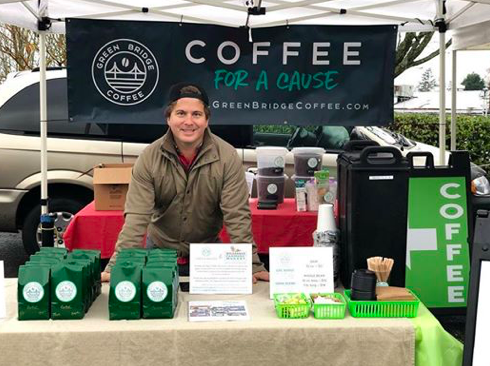
I wish I would have taken my thoughts around customer demographics to a deeper level. Location is everything. Then the deeper thought should be around the question “What does this location need?” Adapt your concept to cater to the deeper needs! – Joel Stenberg, Owner of Green Bridge Coffee
Know your Business inside and out! If it’s a coffee shop work in one, learn about beans, what’s trending and different ways to make the coffee even the roasting process. I had previous restaurant experience (which helped!) but never worked in an actual coffee shop. Thus, learning by trial and error would be an expensive way to go!
Read books about coffee and anything else pertaining to your business including business books, classes, YouTube, whatever. Constantly educate yourself… I still do after 25 years in the business. Secondly, don’t befriend your employees, be friendly but don’t cross the line! Hanging out with them for drinks after work is just a bad idea (unless it’s a company thing). Employees will break your heart not matter what but when your actually friends with them it can go so much worse. – Kerry Krull, Founder/Owner of Romancing the Bean Cafe
How important it is to have clarity on your cash flow as well as profit and loss. Also, how important it is to understand who you are and what you stand for. How to get all of that out of your head and on to paper for everyone to get behind and support.– Nolan Hirte, Founder/CEO of Proud Mary
The Business 101. Meaning all the rules, regulations, and behind the scenes kind of stuff. – Dan Ollis, Owner of Victrola Coffee
Starting out a business with a partner requires an operating agreement up front prior to opening your door. Hard to go back later mid stream. – Jamie Grosse, Co-owner of Barista – Portland, Oregon
Our situation is perhaps a little unique in a sense that we came to coffee with a lot experience operating full-service restaurants. We were quick to apply lessons learned from full service restaurants to counter service coffee shops. Coffee is really unique and special with its own type of customer and use pattern. Whatever business you’re in, you need to really know your customer. We made the mistake of assuming that because we knew our restaurant customer, we would also know our coffee customer. We have a really incredible team that has helped to get us up to speed, but I wish we had been more savvy to this from go. – Jeremy Price, Co-Owner and Co-Founder, General Porpoise Doughnuts and Coffee
I would say just how expensive everything can be during a build out. We were fortunate enough to be able to do a lot of things ourselves, and we had a lot of friends to help along the way, but the things we had to hire out for were more than what we had originally planned. Not that I’m complaining about that. We were fortunate enough to work with great people who treated us fairly, and it was well worth the money spent. – Travis Coe, Founder and co-owner of Jet Black Coffee Company
Honestly, we did a good research before we started. We knew right away that we wanted to do a 3rd wave specialty shop with great coffee. So we put a lot of effort into researching the coffee suppliers, equipment, and such. We made phone calls, wrote emails to different people in hopes to get more information. We got introduced to the representative for La Marzocco who gave us great info and great advice. He told us to try different coffee suppliers and see which coffee you actually like and go with what you like because other people will like it to. Don’t serve coffee you don’t want to drink yourself even if it’s a good brand.
Both my partner and I are perfectionists so we were hands on during all the stages of construction, preparation for opening, and everything thereafter.
But I guess, one thing I definitely wish we knew better was the building requirements, we ended up doing more than what was required because we went with an old school architect. – Katie Hayes, co-founder at Enigma Coffee
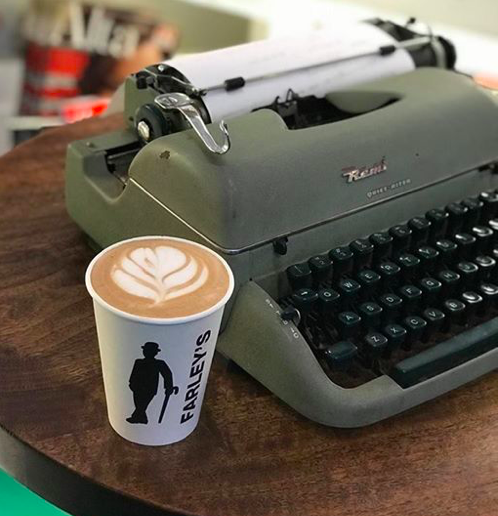
How much work it would actually be to run the cafe. It’s a lot of work to open a cafe, but even more to run it on a daily basis and keep yourself relevant in the marketplace! – Chris Hillyard, GM/Co-Owner at Farley’s
The one thing I wish I had known before starting a coffee business …Where is the every best location to start the business. – Jeff Babcock, founder and CEO of Zoka Coffee & Tea, Seattle Washington
- Trust Your Gut. Don’t be afraid to take calculated risks. You miss out on opportunities by overthinking whether you should move forward or not. For example, we waited 5 years longer than we should have to hire a General Manager. We have an amazing person on board but would have been better organized had he joined us sooner.
- Self Care – Life/work balance is critical. You can’t do your best work when tired. Plus the best business ideas come when you think outside the box…. Wow moments present themselves listening to great jazz at a club in New Orleans. – Mary Allen Lindemann, Co-founder/owner & Community Builder of Coffee By Design, Portland, Maine
Don’t leave sorting out a POS system too late. It’s an easy task to put off, but having a system that’s suited to your business and that you and your staff are confident with will make the world of difference. A good one will cut down on admin and provide insights into how to run your business more efficiently- leaving you more time to focus on your passion project. – George Urdea, Co-founder of Nobly POS.
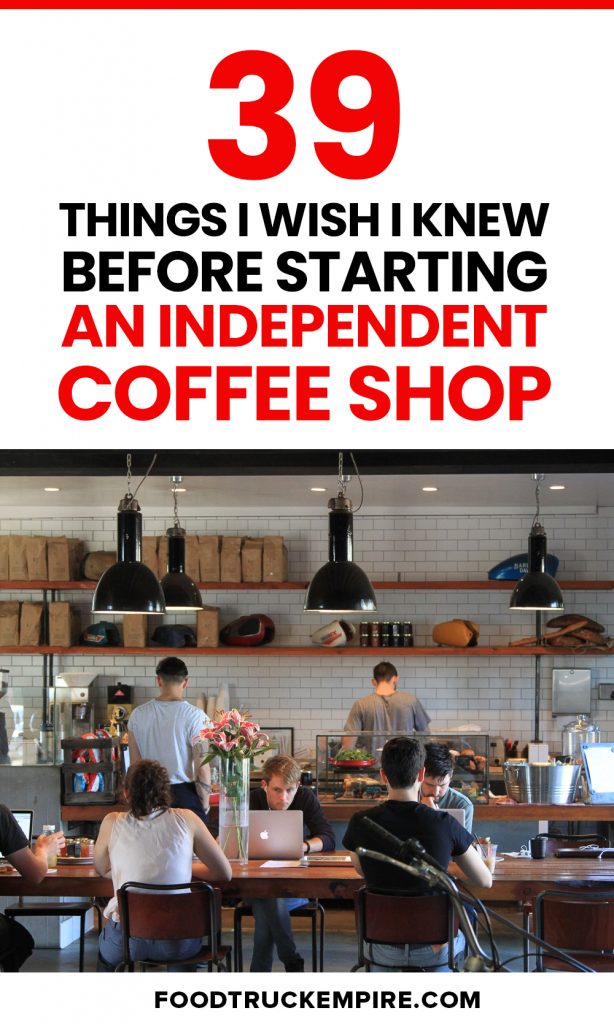
How much it really costs to have employees!
When you factor in health insurance, workers-comp insurance, rising
minimum wage, taxes, HR expenses, etc. the cost is almost twice their
actual wage per hour. Many of these expenses are out of our control.
Workers comp laws in California are so bias against the employer, and the
market to buy this seems to be a monopoly, that it is often the reason
small businesses go out of business as you cannot legally operate without
it and the insurers know this.
Another example is the dramatic minimum wage increase from $10 – $15 in I believe a 4 year period. For most small business the only way to
compensate for this is upping prices which leads to a myriad of other issues. – Richard, co-owner, the Village Bakery and Cafe
One thing that I would have preferred knowing prior to owning a coffee shop is the amount of taxes I would have to forfeit and how to better communicate when it comes to working alongside a staff member team and my consumer base.
The Café was founded in 1973 by a gentleman named Jay Goldberg. I am the new owner of the café since 2018 and my goal is only to keep the magic and history alive, a dream café next to the university where I received my undergrad. My name is Diego Lopez, holistic new owner of Barclays Coffee & Tea.
No matter what type of coffee you serve, there will always be customers that complain – Kia Illulian, Co-Founder of Carrera Cafe
How challenging it is to find excellent employees, and the high cost of permits, fees, and taxes in the State of California. – Renee Brown, Vice President of Wild Card Roasters & Weaver’s Coffee & Tea Brand
Continue Learning:

